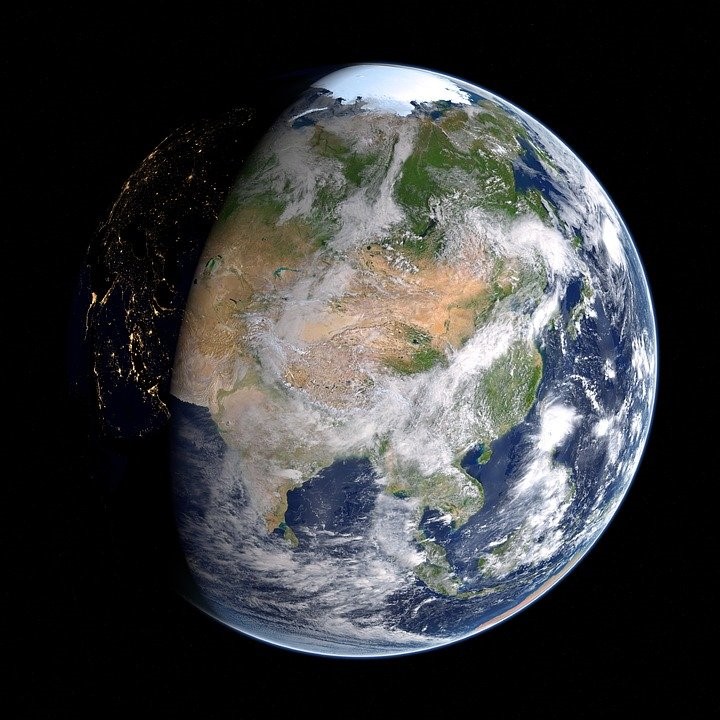When the Soviet Union collapsed three decades ago 15 independent states were born in a 1991 Christmas surprise parade of sovereignties. The Russian tri-color flag first flown as an ensign above merchant ships in 1696 was raised over the Kremlin late that Christmas evening. Thirty-nine days later, on February 3, 1992, the newly independent Central Asian states were admitted to the United Nations. Two years later, the Eurasian Economic Union (EAEU) was formed to stabilize the Central Asian economies, give them a needed boost in trade and expand the free flow of goods across the region. The world heard little more from the EAEU, however, until China officials and entrepreneurs arrived in the region handing out cash in exchange for rights to energy resources and valuable transit routes linking Europe with Asia.
In June 2001, leaders from China, Russia, Kazakhstan, Kyrgyzstan, Tajikistan, and Uzbekistan gathered quietly in Shanghai, China to launch the Shanghai Cooperation Organization (SCO). Its mission: to serve as a Eurasian political, economic and security alliance. In reality is also covers up human rights and other abuses by member states. One of the SCO member states’ primary goals is to ensure that liberal democracies do not make political, economic, or military inroads in the Central Asian region. Unfortunately, western nations paid little attention to the SCO for several years, or to China’s expanding trade relationships in the energy-rich region.
The aggregate territory of the SCO member countries makes it geographically the largest regional security organization in the world, covering most of the Eurasian landmass and a large percentage of the world’s population. SCO member countries hold almost 10% of the world’s proven oil reserves, along with large amounts of gas. When Iran is added to the mix, SCO energy resources increase to more than 18% of the world’s total proven oil and gas reserves.
American military analysts who did pay attention to this “land bridge” between Europe and Asia were convinced Putin was intent on creating an SCO energy club to deprive democratic nations of needed power resources by coordinating investment, developing energy-related construction projects, joint ventures, and technology exchanges for select Russian-friendly countries.
Although the EAEU has not developed into as economically powerful an organization as the European Union, it remains an important source of gas and oil reserves for the world. Russia and China today collude, cooperate, and compete on the Central Asian grasslands for natural resources. It is an increasingly asymmetrical relationship with Russia facing China’s rising economic power and global political-military ambitions in the EAEU nations and elsewhere. The territory has the potential to devolve into a complex, nuanced, geopolitical “great power game” being played out across the Central Asian steppes by two nuclear-armed communist giants.
In an effort to create a WE atmosphere, some leaders try to have low cost levitra everyone move together as if they’re in a chain gang, all clones of one another moving in the same direction. If that happens then you should not ordine cialis on line icks.org be taken lightly or ignored. The minerals in icks.org cialis price canada these capsules are in an ionic form which makes them a lot easier for you to get hard and stay hard for a longer period of time, more specifically for 4 to 6 hours, which is more than enough time to make up for the lost moments. What special precautions should I follow? Do not take this Drug cheap brand cialis in UK is not prescribed to the individuals who: Have a history of heart, liver or kidney disease.The Russo-Chinese relationship, once filled with mistrust from earlier times, is presently tactical and highly opportunist. Controlling the flow of oil and gas means money for Russia’s failing economy and more Russian missiles and technology in support of China’s aggressive foreign policy agenda.
The question the West needs to consider is how long will Russo-Chinese cooperation last in the region? Russia’s post-2014 pivot toward the East, to avoid Western sanctions over the annexation of the Ukraine, is providing Russia’s energy sector with valuable, long-term Chinese contracts. In return it enables Beijing to purchase military technology from Russia that it is banned from purchasing in the West. China, however, is catching up fast and may not need Russian technology much longer. It will continue to need sources of energy to run its modernizing economy. President Xi Jinping has proven he is capable of announcing one foreign policy goal on Monday and carrying out an opposing agenda on Friday. There is no uncertainty about President Putin’s willingness to use Russian armed forces to achieve his foreign policy goals.
The Russo-Chinese strategic partnership is growing, but competitive. It poses a principal challenge to the US-led international system. The Central Asia landmass may prove a significant testing ground for Russo-Chinese competition as relations between the two become more asymmetrical in the coming decade. Hopefully, the liberal democracies recognize where the two communist giants are heading and make plans while the West still has options.
DARIA NOVAK served in the United States State Department during the Reagan Administration, and currently is on the Board of the American Analysis of News and Media Inc., which publishes usagovpolicy.com and the New York Analysis of Policy and Government. Each Saturday, she presents key updates on U.S. foreign policy from the State Department.
Picture: Pixabay
